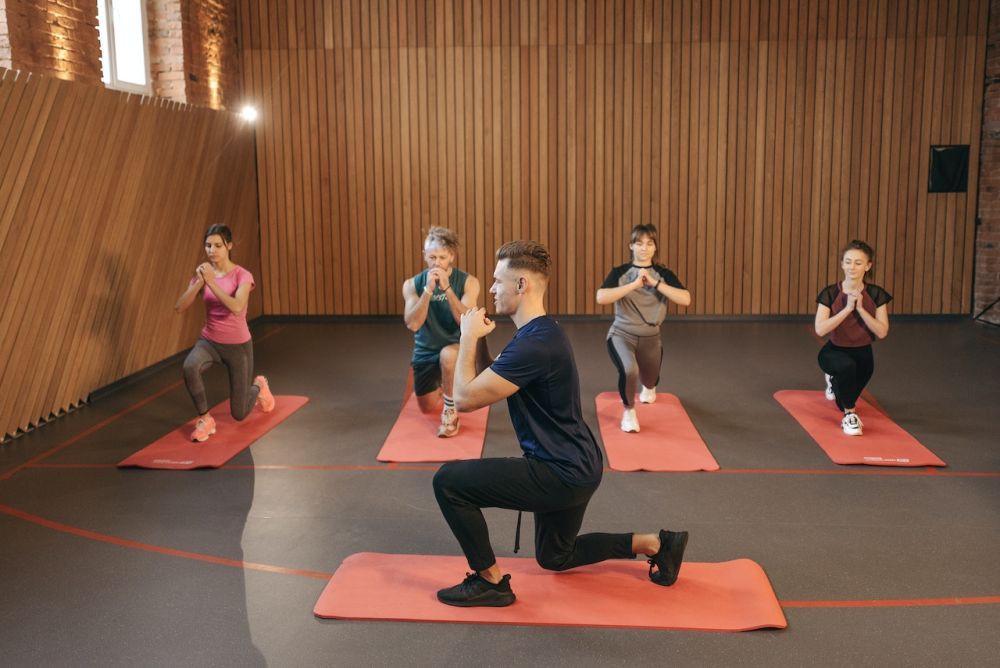ilustrasi padel (unsplash.com/Gabriel Martin)
Segala bentuk olahraga dapat membantu mengatasi depresi. Beberapa contohnya:
- Bersepeda.
- Lari atau joging.
- Olahraga permainan seperti padel, tenis, atau bulutangkis.
- Senam aerobik, Zumba.
- Berkebun.
- Hiking.
- Pekerjaan rumah tangga, seperti menyapu, mengepel, atau menyedot debu.
- Berenang.
- Jalan kaki.
- Pekerjaan di halaman, misalnya memotong rumput atau menyapu.
- Yoga atau pilates.
Karena dukungan sosial yang kuat penting bagi orang dengan depresi, mengikuti kelas olahraga kelompok mungkin bermanfaat. Bisa juga berolahraga bersama pasangan atau teman. Dengan melakukannya, kamu akan mendapatkan manfaat dari olahraga dan kenyamanan emosional, karena tahu ada orang lain yang mendukung kamu.
Olahraga bisa membantu mengurangi gejala depresi. Ada banyak cara olahraga membantu memperbaiki suasana hati, seperti melepaskan hormon peningkat suasana hati dan membuat kamu merasa lebih baik tentang diri sendiri.
Untuk memulai, pilih olahraga yang kamu sukai dan lakukan perlahan. Seiring waktu, kamu bisa menambah durasinya. Pada lansia atau jika kamu punya kondisi kesehatan tertentu, sebaiknya konsultasikan dulu dengan dokter sebelum mulai berolahraga.
Referensi
Julia C. Basso and Wendy A. Suzuki, “The Effects of Acute Exercise on Mood, Cognition, Neurophysiology, and Neurochemical Pathways: A Review,” Brain Plasticity 2, no. 2 (February 14, 2017): 127–52, https://doi.org/10.3233/bpl-160040.
Schuch, F. B., & Stubbs, B. (2019). "The role of exercise in preventing and treating depression." Current Sports Medicine Reports, 18(8), 299–304. https://doi.org/10.1249/jsr.0000000000000620
Joanne Gourgouvelis et al., “Exercise Leads to Better Clinical Outcomes in Those Receiving Medication Plus Cognitive Behavioral Therapy for Major Depressive Disorder,” Frontiers in Psychiatry 9 (March 5, 2018), https://doi.org/10.3389/fpsyt.2018.00037.
Emma Childs and Harriet De Wit, “Regular Exercise Is Associated With Emotional Resilience to Acute Stress in Healthy Adults,” Frontiers in Physiology 5 (May 1, 2014), https://doi.org/10.3389/fphys.2014.00161.
Saskia Heijnen et al., “Neuromodulation of Aerobic Exercise—A Review,” Frontiers in Psychology 6 (January 7, 2016), https://doi.org/10.3389/fpsyg.2015.01890.
Kirk I. Erickson et al., “Exercise Training Increases Size of Hippocampus and Improves Memory,” PNAS 108, no. 7 (January 31, 2011): 3017–22, https://doi.org/10.1073/pnas.1015950108.
Yvette I. Sheline, “Depression and the Hippocampus: Cause or Effect?,” Biological Psychiatry 70, no. 4 (July 26, 2011): 308–9, https://doi.org/10.1016/j.biopsych.2011.06.006.
"Ways That Exercise Can Help With Depression." GoodRx. Diakses Juni 2025.
Kathleen Mikkelsen et al., “Exercise and Mental Health,” Maturitas 106 (September 8, 2017): 48–56, https://doi.org/10.1016/j.maturitas.2017.09.003.
"Exercise and Depression: How Physical Activity Can Help." WebMD. Diakses Juni 2025.
Emerson Sebastião and Daniel Mirda, “Group-based Physical Activity as a Means to Reduce Social Isolation and Loneliness Among Older Adults,” Aging Clinical and Experimental Research 33, no. 7 (January 2, 2021): 2003–6, https://doi.org/10.1007/s40520-020-01722-w.
Jaehyun Joo et al., “The Influence of 15-week Exercise Training on Dietary Patterns Among Young Adults,” International Journal of Obesity 43, no. 9 (January 18, 2019): 1681–90, https://doi.org/10.1038/s41366-018-0299-3.
